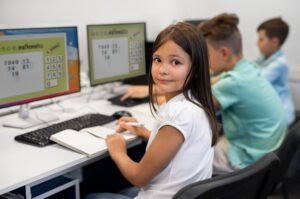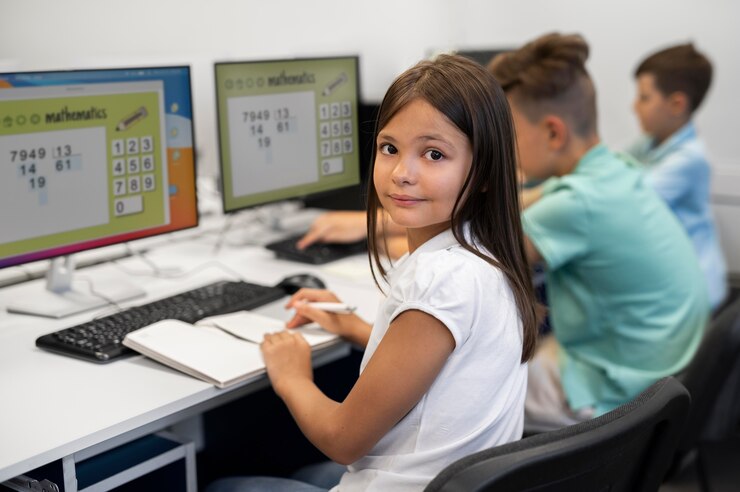
Coding for Kids: Empowering the Next Generation with Digital Literacy
In today’s digital age, understanding how computers work and being able to create software is becoming as essential as reading and writing. This realization has sparked a movement towards teaching kids how to code from an early age. “Coding for Kids” programs are gaining popularity worldwide, aiming to equip children with valuable skills that extend beyond the realm of technology.
Why Teach Kids to Code?
Empowering Creativity and Problem-Solving Skills
Coding fosters creativity by allowing kids to bring their ideas to life through digital creations. Whether it’s designing a game, building a website, or programming a robot, coding empowers children to express themselves and solve problems in innovative ways.
Preparing for the Future Job Market
In an increasingly digital world, coding skills are in high demand across various industries. Teaching kids to code early prepares them for future careers in technology, where jobs are plentiful and well-paying. It also cultivates a mindset of adaptability and continuous learning, essential in today’s rapidly evolving job market.
Benefits Beyond Technology
Enhancing Critical Thinking
Coding requires logical thinking and sequential reasoning, skills that are valuable in all areas of life. By breaking down complex problems into smaller, manageable parts, kids learn how to approach challenges systematically and methodically.
Promoting Collaboration and Communication
Many coding projects involve teamwork, where children collaborate to brainstorm ideas, divide tasks, and troubleshoot together. These experiences not only teach coding skills but also foster communication and interpersonal skills crucial for success in any field.
How Coding Enhances Learning
Integration with Core Subjects
Coding integrates seamlessly with other subjects like math, science, and even art. For instance, creating animations or simulations requires understanding mathematical concepts such as coordinates and angles. Similarly, coding projects related to science topics can deepen children’s understanding through interactive simulations and experiments.
Hands-On Learning
Coding is a hands-on activity that encourages experimentation and exploration. Kids learn by doing, encountering challenges, and finding solutions through trial and error. This experiential learning approach enhances retention and understanding, making concepts more tangible and applicable.
Tools and Resources for Teaching Coding
Kid-Friendly Programming Languages
Several programming languages and platforms are specifically designed for children, offering simplified syntax and engaging interfaces. Examples include Scratch, Blockly, and Tynker, which use visual blocks or drag-and-drop commands to introduce coding concepts in a playful manner.
Online Courses and Coding Clubs
Beyond school curricula, online courses and coding clubs provide structured learning environments where kids can deepen their coding skills. These platforms offer interactive lessons, coding challenges, and opportunities to connect with peers who share similar interests.
Overcoming Challenges and Encouraging Inclusivity
Addressing Gender Disparities
Efforts are underway to close the gender gap in coding by encouraging girls to pursue coding from an early age. Initiatives like Girls Who Code and coding workshops for girls aim to create a supportive environment where girls feel empowered to explore and excel in coding.
Access to Technology
Ensuring equitable access to technology and coding education is crucial. Schools, community centers, and libraries play a vital role in providing resources and opportunities for children from diverse backgrounds to learn coding.
Conclusion: The Future of Coding for Kids
As we look towards the future, coding for kids is not just about preparing them for careers in technology but also about equipping them with essential skills for navigating a technology-driven world. By embracing coding education, we empower the next generation to innovate, create, and shape a brighter future for themselves and society as a whole. Through coding, kids learn not only how to program computers but also how to think critically, collaborate effectively, and solve problems creatively. Embrace the power of coding for kids today, and pave the way for a generation of digital innovators tomorrow.
